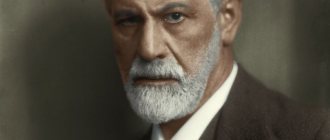Freeze mood
We are used to believing that venting our emotions makes us feel better. The idea of “catharsis” is that by releasing our anger, we get rid of negativity.
Participants in an “emotion freezing” experiment believed that a magic pill could freeze them while they were given a placebo. They were specially brought to the boiling point and then immediately given a tablet. All participants noted an almost immediate calm and all stated that they felt significantly better.
That is, you don't have to express your anger or negative emotions, or take a magic pill. The trick is that you just need to convince yourself that you will feel better without expressing anger. Just if you are aware of it and calm down without breaking cups, screaming or beating up a stuffed boss.
Theory of emotions
For many years, scientists have studied emotions, where they come from and how they manifest themselves, but, most importantly, researchers have always been interested in the question of what happens in a person’s head when he experiences emotions. The most famous concept is Schechter and Singer's two-factor theory of emotion. According to their idea, the experience of emotions is based on two factors: physiological arousal and cognitive interpretation.
Previously, that is, before 1962, the year when this theory appeared, it was generally accepted that emotions were based solely on physiology, and mental processing had nothing to do with them. The two-factor theory says that first, when we experience any emotion, physiological arousal occurs, after which we begin to look for clues in the world around us in order to interpret it correctly. If, for example, we are sweating because we were running to catch the bus, then this will not be perceived as an emotion. And if we don’t find an objective explanation for what’s happening (because we didn’t run anywhere), then we begin to interpret it as excitement, fear, or something else. And only then do we recognize a specific physiological manifestation as an emotion.
"Facial" feedback
According to one theory, there is a certain relationship between facial expression and inner mood. That is, if you frown on purpose, your mood will immediately deteriorate. If you smile through force, your mood will immediately improve.
And this theory was tested on people who received Botox injections. It turned out that they are able to experience empathy (empathy) to a lesser extent due to the inability to express their emotions on their faces due to the injections they received. However, the results were not taken into account, since these people did not show much emotion even before the injections.
Learning theories
Learning is a long-known process to all of us, which is defined as a constant change in behavior as a result of gaining knowledge and experience. There are also three main theories here.
The theory of classical reflexes. Its principle of operation is perfectly illustrated by the well-known experiment with Pavlov’s dog. If a dog is regularly given some kind of signal before eating, then it will react with profuse salivation not to the fact of food itself, but to the signal - at the level of reflexes it will be associated with food.
Operant conditioning theory. It is based on the use not of some signal, but of a system of rewards or punishments. If, for example, you set yourself a task for the day and were able to complete it, then in order to consolidate the result and repeat positive behavior, you need to praise yourself. For example, relaxation, delicious food or something else that will make you happy.
Social learning theory involves learning in groups. That is, a person masters skills through observation or imitation (also called modeling). This theory differs from the other two in that it refers not only to reflexes, but also to cognitive processes occurring in the head.
Self-affirmation. I am the most charming and attractive!
Often positive self-affirmations make people stronger internally and give them a much greater chance of success in achieving their plans. However, there is a certain risk in this approach. A recent study showed that overconfident people sometimes find it very difficult to start again when they fail. And how much to heart you took this failure may show that your chances of success in your future activities are, in fact, much less than you thought.
Psychoanalysis as a theory of personality development
The term "psychoanalysis" can be considered in three meanings:
- as a theory of personality and psychopathology;
- as a method of treating personality disorders;
- as a method of studying unconscious thoughts and feelings of an individual.
The leading role in this theory belongs to the interaction of instincts, motives and drives, competing with each other in the process of regulating human behavior. According to this theory, personality is a dynamic and ongoing conflict of processes and, in accordance with this, human behavior is unstable and deterministic.
According to psychoanalytic theory, each person is a complex energy system, and his behavior is activated by a single energy according to the law of conservation of energy. The source of this energy for a person is a state of excitement. Each person has a certain amount of energy that fuels his mental activity, and the goal of any human behavioral model is to reduce the tension that is caused by the accumulation of this energy.
Head in the clouds
The term "mind-wandering" wasn't particularly well known until 2013, but recent research has shown that you can actually get some benefits for your thinking (and your teacher at school would have told you that you were counting crows). We tend to think that this is bad for our daily work, but research has shown that you can better cope with your tasks and plan for the future if you occasionally let your mind wander. Perhaps it is there that an unexpected insight may come to you, because your consciousness is completely free and perceives what was previously either not noticed or suppressed.
Advantages of teaching
The psychological theory of law is closely related to the personal mechanism of formation of lawful behavior. When translating a number of legal regulations into the quality of actual behavior, experiences, the psychological impulses of the individual will become the last link that directly comes into contact with specific behavior. Law can regulate behavior only through the mental and psychological sphere. Thus, the psychological theory of the origin of law takes into account the personal characteristics of people and the role of legal consciousness in regulating social relations.
Could you do me a little favor?
The “foot-in-the-door” technique (getting a chance at something) allows you to manipulate a person’s consciousness in such a way that he does something very important and difficult for you, first by simply agreeing to fulfill a small request. However, there are those who manage to twist it so that in the end the person does twice as much (double foot-in-the-door).
This process consists of three stages: small, medium and large, rather than immediately moving from small to large. Framing the question this way makes the last task less daunting. And even if you have to spread it out over a week or two, it still pays off in the end.
Basic Concepts
Hyperthymic personality type - what is it in psychology
Personality is a social individual, a set of relationships, activities and behavior that characterizes a person.
Note! Personality theories in psychology are a set of hypotheses and definitions with the help of which the mechanisms of personal development are studied. Their main task is to explain human behavior, as well as learn to predetermine it.
Structural elements of personality theory in psychology
S. Freud is considered the author of the structural theory and structural principle of personality development. He conditionally divided the personality model into 3 components:
- Id (It). A congenital element that occurs when a child is born. At the same time, the baby strives to get something that will make him feel good here and now, no matter what. For example, loud crying until the need (to eat, to communicate) is met;
- Ego (I). Formed during the first 3 years of life. The child realizes that his behavior has a response. For example, before doing something forbidden, the Ego begins to remind you of possible negative consequences;
- Superego (Super Ego). It is in shape by the age of 5 years. This personal element is based on the principles and ideals received from parents and environment. It is considered equivalent to conscience due to the ability to evaluate “good” and “bad.”
Goal template
When we are looking for a way out of a difficult situation, for example, trying to cross a busy street, first of all we must identify the main source of danger for ourselves.
The Goal Pattern is a guide for finding similar arrays of stimulated complexes. And video games can help you with this. Despite the fact that many people talk about the dangers of playing a lot of video games, there are actually some positive aspects to them. For example, they are an ideal trainer for searching for and identifying hazards and scanning difficult situations. And the more action-oriented the game, the more impetus you get to train your attention.
And then I immediately remembered how the neurologist of my friend’s child said: “But he better play this more often!” after she saw one of the games on the wii. “It develops fine motor skills and intelligence well!” — the advanced aunty doctor added in parting. And that was 5 years ago 
Observer effect
If you ask a lot of people for help, they will most likely not respond to your request.
In classical psychology, there is a very sad story about a woman who became a victim of rape at her own entrance on the street next to an apartment building. And although many people looked out the window and heard cries for help, saw exactly what was happening - no one helped her, since everyone thought that such loud cries had already attracted attention, and someone else called the police.
What’s interesting is that the more people around you, the less likely you are to get help, even if you find yourself in a really bad or dangerous situation. Therefore, if you need help, then contact specifically each person who can provide it. And in case of an emergency: call for help and be specific. For example, if you need help on the street, then do not direct your calls to nowhere, but designate them: “Man in a brown coat! Please, help!"
Dark Triad
The dark triad is a combination of narcissism, psychopathy and Machiavellianism (brute force, disregard for moral standards, etc.). And it doesn't just sound bad. This is really bad in most cases. Usually, these are people who bring a lot of suffering and trouble to others, and loving such a tyrant is real torture. But, nevertheless, during the research it was found that it is these traits that contribute to career advancement. People with these traits are incredibly persistent and productive. Moreover, they outperform their more conscientious, slightly obsessive-compulsive (repetitive behavior) counterparts.
Behaviorism
Behaviorism is the science of behavior and how to influence it.
This direction of psychological science as behaviorism appeared in 1913 after the publication of an article by psychologist John Watson in a famous psychological journal. He expressed an idea unthinkable for that time, which gave rise to a completely new direction in the study of man, as well as new research methods, and followers, among whom were Burres Skinner, Edward Thorndike, Edward Tolman.
Behaviorism: J. Watson, E. Thorndike, B. Skinner, E. Tolman
Behaviorists believed that consciousness does not exist, and various mental phenomena cannot be studied, i.e. subjected to objective research methods, since either it cannot be proven that these phenomena really exist, or these phenomena are simply not available for study.
Representatives of this direction believed that behavior arises due to some environmental factors, and not due to internal factors. They derived a formula called “stimulus-response” (S → R) . It means that any reaction (R) of the human or animal body was caused by a certain stimulus (S). Behaviorists also believed that behavior could be controlled. To do this, you need to select the right stimuli to evoke a certain behavior corresponding to a given stimulus.
Behaviorists conducted many interesting, but sometimes not entirely ethical, experiments and studies. For example, J. Watson conducted an experiment with little Albert, during which he instilled a fear reaction in the boy to prove the validity of his theory.
E. Thorndike conducted experiments on animals. For this purpose, he specially invented “problem boxes” in which animals were placed to overcome various obstacles. Through his research, Thorndike determined that animals learn by trial and error and developed the laws of learning. Neobehaviorist B. Skinner developed the concept of operant conditioning, which includes a system of rewards and punishments.
E. Tolman (also a neobehaviorist) proposed a cognitive theory of learning, conducted several experiments on rats, as a result of which he formulated the “cognitive maps” hypothesis. He also supplemented the formula S →R with an additional intermediate variable (O - organism). As a result, its formula looks like this: SOR.
Fear of happiness
Despite the fact that a person considers the search and achievement of happiness to be the meaning of his life, many are actually afraid of it. This is similar to the fear of success, when a person deliberately goes to great lengths to fail the assigned tasks, since success means both greater responsibility and work. In cultures in which worldly (earthly) happiness and prosperity are associated with sin, a person who has achieved all this feels, no matter how paradoxical it may sound, unhappy. That is, we want to have material and moral benefits, to have a loving family, a favorite job and money, but at the same time we begin to feel very awkward compared to the rest of society when we achieve all this. And rich and successful people are often stigmatized by society. People rarely believe that all this can be earned and deserved by honest work, and not inherited or stolen.
Buridan's Ass Paradox
The more choices a person has, the more difficult it is for him to choose.
German psychologist Barry Schwartz studied the phenomenon of how satisfied a person is with the results of his choice depending on how many options he was offered. It would seem that the more, the better. However, the quantitative difference can be noticeable only up to 4-6 options, and then the more of them appear, the more difficult and painful it is to decide to remove the remaining options. At the same time, even after making a choice, a person is tormented as to whether he made a mistake, not receiving satisfaction from the choice.
If you are faced with a choice problem with multiple options, then try to reduce their number to a minimum. 5-6 pieces will be quite enough, but until this number is reached, mercilessly cross out all the options that cause you even the slightest doubt.
Professional calling
If you think of work as your “calling,” you will enjoy the process much more. People who think of their work as a calling feel more motivated and satisfied. And the key to this feeling is not only that you feel that this work is your calling. But also that you can live without it.
When your desire matches your experience, you feel more in control of your career, which in turn can help you feel connected to a greater purpose in life than just a job.
Photo: Shutterstock
Basic provisions of the theory of law
The psychological theory of law by L. Petrazhitsky contains the following points:
- The doctrine includes positive law and intuitive. The first officially operates in the state, when the second underlies the psyche of people and consists of the experiences of groups and associations.
- Positive law is the current regulations established by the state and the legislator.
- Of all the known psychological states of a person, the main ones are emotions that motivate action. When building relationships with other people, an individual relies on intuitive right. This type of theory is considered true by the authors of the theory, since it encourages independent and volitional actions.
The discord between the two species causes social upheaval. In this case, law plays the role of one of the phenomena of the mental life of society, which represents a mandatory, demanding experience of people.










